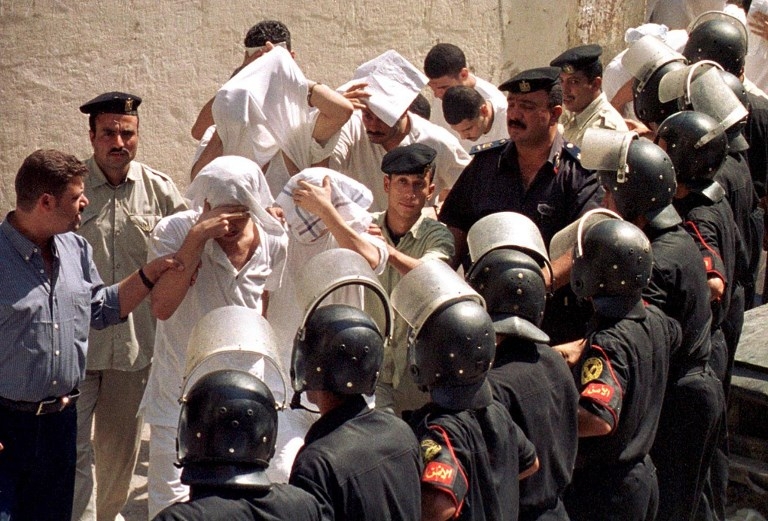Egypt to conduct anal exams on men suspected of being gay: Amnesty

Six Egyptian men arrested for "promoting sexual deviancy" and "debauchery" on social media will be subjected to anal examinations ahead of their 1 October trial, Amnesty International said on Saturday.
Their arrest is part of a wider crackdown against homosexuality that started last week when a group of people were seen raising a rainbow flag at a concert, a rare public show of support for lesbian, gay, bisexual and transgender rights in the conservative Muslim country.
At least 11 people have since been arrested, Amnesty said, and one man has been sentenced to six years in jail after local media launched a highly critical campaign against those who raised the rainbow flag at a Mashrou' Leila concert, a popular Lebanese alternative rock band whose lead singer is openly gay.
Police arrested one man on 23 September, through entrapment on a dating app, a common police technique in Egypt, and claimed he had been among those to wave a flag, according to Human Rights Watch.
“Whether they were waving a rainbow flag, chatting on a dating app, or minding their own business in the streets, all these debauchery arrest victims should be immediately released,” said Sarah Leah Whitson, Middle East and North Africa director at Human Rights Watch.
“The Egyptian government, by rounding people up based on their presumed sexual orientation, is showing flagrant disregard for their rights.”
Amnesty said the Forensic Medical Authority was due to subject the six men to anal examinations to determine whether they have had homosexual sex.
Judicial sources said any defendant accused of "debauchery" or "sexual deviancy", a euphemism for homosexuality in Egypt, is subjected to a medical examination based on an order from the Public Prosecutor.
"Allegations of torturing or insulting those medically examined are lies not worth responding to. The examinations are carried out by a forensic doctor who swore to respect his profession and its ethics," one judicial source said.
Amnesty said such examinations violate the prohibition of torture and other ill-treatment under international law.
"The fact that Egypt's Public Prosecutor is prioritising hunting down people based on their perceived sexual orientation is utterly deplorable. These men should be released immediately and unconditionally – not put on trial," said Najia Bounaim, North Africa Campaigns Director at Amnesty International.
Forced anal examinations are abhorrent and amount to torture… these men should be released immediately
- Najia Bounaim, North Africa Campaigns Director at Amnesty
"Forced anal examinations are abhorrent and amount to torture. The Egyptian authorities have an appalling track record of using invasive physical tests which amount to torture against detainees in their custody. All plans to carry out such tests on these men must be stopped immediately."
Similar anal examinations have been carried out in Lebanon.
Egypt's Muslim religious establishment is voicing its support for the government's moves against homosexuals.
"Al Azhar will stand against calls for sexual perversion the same way it has stood against extremist groups," a preacher at the 1,000-year-old seat of Sunni Muslim learning said in his Friday prayers sermon.
Although homosexuality is not specifically outlawed in Egypt, it is a conservative society and discrimination is rife. Gay men are frequently arrested and typically charged with debauchery, immorality or blasphemy.
The largest crackdown on homosexuals took place in 2001, when police raided a floating disco called the Queen Boat. Fifty-two men were tried in the case.
“Egypt should stop dedicating state resources to hunting people down for what they allegedly do in their bedrooms, or for expressing themselves at a rock concert, and should instead focus energy on improving its dire human rights record,” Whitson added.
Middle East Eye propose une couverture et une analyse indépendantes et incomparables du Moyen-Orient, de l’Afrique du Nord et d’autres régions du monde. Pour en savoir plus sur la reprise de ce contenu et les frais qui s’appliquent, veuillez remplir ce formulaire [en anglais]. Pour en savoir plus sur MEE, cliquez ici [en anglais].



